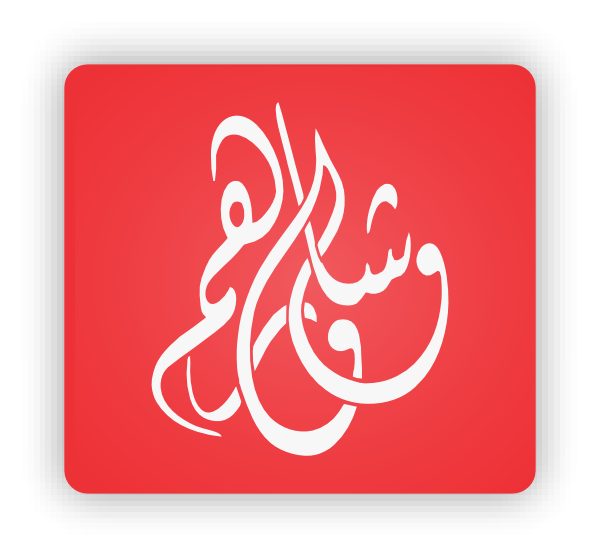List of all founder members of All India Muslim Majlis-e-Mushawarat
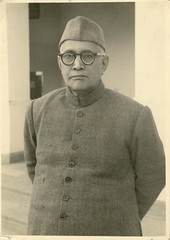
Syed Mahmud
Founder
Shed Mahmud
Founder Members
An eminent freedom fighter, leader of Indian National Movement and uncompromised torch bearer of peace and harmony, Dr Syed Mahmud was born in a prominent family of Ghazipur district of UP. He studied at MAO College, Aligarh and Cambridge University, London; and obtained Ph.D. from Germany.
During his time at the university, he joined the national movement and being expelled from AMU for his political activities, he travelled to England and studied law. In 1909, he came in contact of M K Gandhi and J L Nehru there. In 1913, he came back home and joined his legal profession in Patna with Maulana Mazharul Haq, a senior lawyer and founder of ‘Sadaqat Ashram’. In 1915, he married Mazharul Haq’s niece. He was soon drawn into the strengthening independence movement. In 1921, he was elected General Secretary of the Central Khilafat Committee. He served as the General Secretary of Indian National Congress since 1926 until 1936. In August 1942, along with nine other members of the Congress Working Committee, Dr Mahmud was imprisoned in Ahmednagar Fort.
Gandhiji visited Bihar in 1946 after riots broke out and lived with Dr Mahmud. Mahmud gave high priority to the elimination of communalism, antagonism based on religion and caste identity. In January 1948, Gandhiji asked Mahmud to accompany him to Pakistan, but this proposed visit could not take place because of assassination of Bapu.
Dr Mahmud was the Minister for Education, Development and Planning in Sri Krishna Sinha led government of Bihar,1937 and post-independence, the Minister for Transport, Industries and Agriculture. Pained with communal partition of India, an optimist in him motivated him to write one of his books ‘Hindu Muslim Accord (1949)’, celebrating the `Ganga-Jamuni Tehzeeb of India’. He was elected for the first Lok Sabha from Chapra, Bihar and became the Union Minister of State for External Affairs 1954. He participated the Bandung Conference (1955), where Panchsheel was spelled out and visited Egypt, Saudi Arabia, Iran and Iraq to promote mutual understanding and goodwill. He resigned the union council of ministers on 17 April 1957 because of his eye trouble but the communal and political situation of the country made him uneasy, and he called for Muslim unity and worked for to protect and defend the identity and dignity of the Muslim Community and its Constitutional and Human Rights, specially Right to Equality, Justice and Security.
In 1964, he convened the representative Convention of Indian Muslims across the cast, creed, sect and region, at Lucknow and was elected President of the first and only confederation of prominent Muslim organizations in post-independence India, All India Muslim Majlis-e-Mushawarat (AIMMM). He chaired AIMMM until April 1968 but the aim, objectives and principles of AIMMM until he breathed last. The Life and active political career of this uncompromised torch bearer of freedom, peace and communal harmony came to an end with the demise after 50 years of struggle within and outside the congress on 28 September 1971.

Mufti Atiqur Rahman Usmani
Founder
Mufti Atiqur Rahman Usmani
Founder Members
Mufti Atiqur Rahman Usmānī was born in the household of Maulana Azizur Rahman Usmani, Grand Mufti of Draul uloom, Deoband in 1901. After graduating from Darul Uloom joined the academia of his alma-mater and started practicing the Fatwa under the supervision of his father and became the Mufti of prestigious seminary Darul Uloom, Deoband. Mufti Sahib was a trusted disciple of Allama Anwar Shah Kashmiri and he joined Jamia Islamia Talimuddin, Dabhel (Gujrat) with him also as a teacher.
Being a literary person Mufti Usmāni established “Nadwatul Musannifeen” along with his close associate Maulana Hamid al-Ansari Ghazi, Maulana Hifzur Rahman Seoharwi and Maulana Saeed Ahmad Akbarabadi in Delhi 1938. He written and edited many books of high excellence and eminence. Mufti Usmānī served as the working president of Jamiat Ulama-e-Hind after the death of its president, Maulana Ahmad Saeed Dehlvi.
He was co-founder of All India Muslim Majlis-e-Mushawarat and became its president after Syed Mahmud. Mufti Sahib died on 12 May 1984 in Delhi. He was buried in Mehdiyan, near the grave of Hazrat Shah Waliullah Dehlawi.

Muhammad Ismail, MP
Founder
Muhammad Ismail, MP
Founder Members
M Muhammad Ismail (5 June 1896—5 April 1972) was born to Maulavi K T Miakhan Rowther in a Tirunelveli Rowther family. He studied at C M S College and Hindu College at Tirunelveli and later at St. Joseph’s College, Trichinopoly and Christian College, Madras.
Mr. Ismail started the ‘Young Muslim Society’ in his home town Tirunelveli Pettai in 1909 (as a 13-year-old). He was also instrumental in establishing Majlis ul-Ulama (‘the Council of Islamic Scholars’) in 1918. He went into business in the 1920s and became a leader of Madras leather industry and eventually of Madras commerce.
He was one of the principal leaders of All-India Muslim League in Madras Presidency from the mid-1930s.The Indian members of the League formed the Indian Union Muslim League at Madras (first council in March, 1948 and constitution passed in September, 1951). Maulvi Ismail was chosen as the first President of Indian Union Muslim League.
He was Member of the Madras State Legislative Assembly in 1946–1952, Member of the Indian Constituent Assembly (1948–1952) , Member of the Rajya Sabha (1952–1958), and Member of the Lok Sabha (1962–1972).
Ismail served as Vice President, Muslim Educational Association of Southern India and Anjuman Himayat-e-Islam. He was also a founding member of the Tamil Valarchi Kazhagam, Madras.
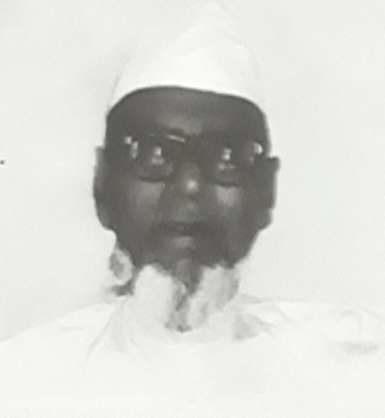
Maulana Abul Lais Islahi
Founder
Maulana Abul Lais Islahi
Founder Members
Maulana Sher Mohammed, popularly known as Maulana Abul Lais, son of Mr. Tawajjah Hussain, was born on 15th February 1913 at Chandpatti in Azamgarh district of UP. He got his education in Nadwatul Ulama, Lucknow and Madarsatul Islah, Azamgarh.
Maulana Abul Lais got the Jamaat Islami membership in 1944. After partition, members of the Jamaat held a two-day session at Allahabad in April 1948, he was elected the first Ameer of the newly formed organisation-Jamaat-e-Islami Hind. He continued in office till 1972. He was again re-elected Ameer in 1981 and continued till 1990.
He played a vital role in the establishment of the Muslim Majlis-e-Mushawarat, the Muslim Personal Law Board and Deeni Talimi Council of UP. His political acumen, educational dexterity and way of thinking on Muslim issues was unique and imitable. He died in Azamgarh on 5th December 1990.
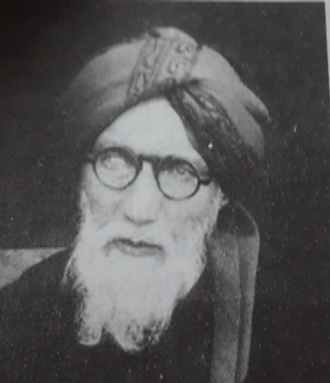
Maulana Manzoor Nomani
Founder
Maulana Manzoor Nomani
Founder Members
Manzoor Nomani (15 Dec 1905 – 4 May 1997) was born to Sufi Muhammad Husain a moderately wealthy businessman and landlord of Sambhal, UP. He received his primary education in his hometown. Later he studied at Darul Uloom Mau. Finally, he enrolled at Darul Uloom Deoband where he remained for two years and graduated in 1345 AH (1927), receiving the highest marks in dawrah -i-hadith.
He started his career as a teacher of Hadith at Amroha and after a few years, he held the post of Shaykh al-Hadith at Darul Uloom Nadwatul Ulama, Lucknow. In 1934 (1353 AH) he established a monthly journal, al-Furqan, from Bareilly. The journal began with a focus towards polemics, but in 1942 (1361 AH) it became more of an academic and religious journal.
Nomani was a founding member of Jamaat-e-Islami Na’ib Amir (Deputy leader) but due to differences with Maulana Maududi he left Jamaat-i-Islami in August/September 1942 (Sha’ban 1361 AH). After leaving Jamaat-e-Islami, he and Abul Hasan Ali Nadwi became affiliated with the Tablighi Jamaat movement. Nomani’s compilation of the malfuzat (sayings) of Muhammad Ilyas comes from the period of 1943 to 1944, mostly during Ilyas’s final illness.
He served in the Majlis-e-Shura and Majlis-e-Amilah (Executive Council) of Darul Uloom Deoband and was a member of the Muslim World League, Makkah. He authored many books in Islamic law and traditions.
He died in Lucknow on 4 May 1997 and is buried in Aishbagh.

Mulla Jan Muhammad
Founder
Mulla Jan Mohammad
Founder Members
Mulla Jan Muhammad (1903-1973) was born in Peshawar. A famous trader of Calcutta’s Machua Fruits Mandi, Faqueer Muhammad Sahib, brought him to Calcutta when he was still quite young. It was Faqueer Muhammad Sahib who organised Khilafat Committee in Calcutta. Jan Muhammad became a full-fledged member of the Committee from the day one. Maulana Abul Kalam Azad often visited the Khilafat Committee office. For his participation in religious meetings and his interest in religious matters, Maulana often called him “Mulla” and Jan Muhammad forever became “Mulla Jan Muhammad”.
Mulla Jan Mohammad was among the leaders who played a vital role in post-partition era in India. He was a known personality earlier too but post-independence, it was a critical period, Muslim masses who were looking for leaders, as top brass had left them, found in him a man who was able to help community pass through the troubled times. In December 1963 and January 1965, communal riots broke out in Calcutta on a large scale. Again, in March and April 1964 large scale communal riots erupted in the industrial belt of eastern India, including Ranchi, Jamshedpur and Rourkela. These riots were so widespread and so well-organised that thousands of Muslims lost their lives and properties worth hundreds of crores of rupees. During these difficult times, Mulla Sahib stood up and never feared raising Muslim. Muslims always appreciated and honoured Mulla Sahib for his role to putting off the flame of the riots and raising the morale of the community. He took interest in the Mohammedan Sporting Club and the Islamia Hospital. A memorable achievement of Mulla Sahib was the establishment of the All-India Muslim Majlis-e-Mushawarat. During its first session at Lucknow, where representatives from all over India had participated with great enthusiasm, people were apprehensive of the session coming to an end without a result. Mulla Sahib stood up to bluntly tell the delegates that he would not allow anybody to leave the hall without reaching a consensus. Thus, at last, a positive decision was taken and Mushawarat was born. According to Maulana Abul Hasan Ali Nadwi “The congregation, after three days’ sessions, in which many times it was feared that it might end up in failure, at last ended successfully as Mulla Jan used to repeat Allama Iqbal’s lines, “Hota hai jada paima phir caravaan hamara” (Here again starts our caravan with a fresh spirit).
After Independence, Mulla Sahib was the only Muslim leader of Calcutta who worked for Muslims day and night, stood beside them through thick and thin, consoled them the occasion of every calamity and taught them forbearance. He raised his voice loudly against the powers which wanted to crush his community. This eminent Muslim soul took it last breath in 1973.
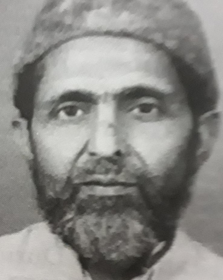
Maulana Muhammad Muslim
Founder
Maulana Muhammad Muslim
Founder Members
An outstanding journalist and freedom fighter, Maulana Muhammad Muslim was Born on 20 December 1920 at Bhopal. During the freedom struggle against the British, he was arrested in 1946. He grew up in a middle-class family in Bhopal and soon became associated with the Khaksar movement due to his revolutionary nature. His journalistic career started with local daily Nadeem.
After independence, he joined the Jamaat-e-Islami Hind and later moved to Delhi and started devoting his energies to the promotion and spread of the Jamaat-e-Islami mouthpiece ‘Dawat’. Even by developing it from a weekly to a tri-day and later for a long period as a daily but the emergency hit in 1977 caused so much damage to this newspaper that it could not regain its position as a daily. At the same time, Muslim Sahib’s health had also responded due to suffering the hardships of imprisonment for 19 months.
Muslim Sahib was completely bedridden for three to four years. The brain tumour operation failed due to which his health was deteriorating day by day and on the morning of July 3, 1986, his time came.
Maulana Muhammad Muslim Sahib lived to 65 years, more than half of which was spent in working for Jamaat-e-Islami Hind, and with the sincerity, diligence and zeal served the community. He came to be counted among the powerful and opinionated leaders of Jamaat-e-Islami who were respected throughout the Islamic world. He strived hard for the unity of Millat e Islamia and played a vital role in the formation the All Idia Muslim Majli e Mushawarat in 1964.
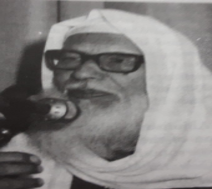
Syed Abul Hasan Ali Hasani Nadwi
Founder
Syed Abul Hasan Ali Hasani Nadwi
Founder Members
Syed Abul Hasan Ali Nadwi (5 December 1913 – 31 December 1999) was a leading Islamic scholar, thinker, writer, preacher, reformer and a public intellectual of 20th century India. He authored numerous books on history, biography, contemporary Islam, and the Muslim community in India. His teachings covered the entire spectrum of the collective existence of the Muslim Indians as a living community in the national and international context. Due to his command over Arabic, in writings and speeches, he had a wide area of influence extending far beyond the Sub-continent, particularly in the Arab World. During 1950s and 1960s he stringently attacked Arab nationalism and pan-Arabism as a new Jahiliyyah and promoted pan-Islamism.
He began his academic career in 1934 as a teacher in Nadwatul Ulama, later in 1961; he became Chancellor of Nadwa and in 1985, he was appointed as Chairman of Oxford Centre for Islamic Studies. He was the founder of Payam-e-Insaniyaat Movement and co-founder of All India Muslim Majlis-e-Mushawarat and Academy of Islamic Research & Publication.
Internationally recognized, he was one of the Founding Members of the Muslim World League and served on the Higher Council of the Islamic University of Madinah, the Executive Committee of the League of Islamic Universities. The lectures, he delivered at Indian, Arab and western Universities have been appreciated as original contribution to the study of Islam and on Islam’s relevance to the modern age. As a theorist of a revivalist movement, in particular he believed Islamic civilisation could be revived via a synthesis of western ideas and Islam. In 1980, he received the King Faisal International Prize, followed by the Sultan of Brunei International Prize and the UAE Award in 1999.

Ebrahim Sulaiman Saith
Founder
Ebrahim Sulaiman Saith
Founder Members
Ebrahim Sulaiman Sait (1922 – 2005), known as “Mehboob-e-Millat”, was born in Bangalore in a Cutchi Memon family, who served as an Indian Union Muslim League Member of Parliament from northern Kerala several times. He was also a founding member of All India Muslim Personal Law Board. In 1994, while serving as its National President, Sait severed ties with the Indian Union Muslim League and formed the Indian National League. Sait was born to Mohammed Sulaiman and Zainab Bai on 3 November 1922 at Bangalore. He obtained his Bachelor of Arts under-graduate degree from Bangalore. He married Mariyam Bai, from Mattancherry, in 1949.Sait served as the National President of Indian Union Muslim League from 1973 to 1994.
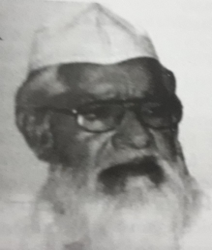
Maulana Asad Madani
Founder
Maulana Asad Madani
Founder Members
Maulana Asad Madani (27 April 1928 – 6 February 2006) was an Indian Islamic scholar of Deoband school and a politician, who served as the sixth general secretary and the seventh President of the Jamiat Ulema-e-Hind, a member of the executive body of Darul Uloom Deoband and a member of the Rajya Sabha, upper house of the Parliament of India for three terms as a member of the Indian National Congress.
Maulana Madni was born in 1928 at Moradabad to Maulana Husain Ahmad Madni. He was raised in Madani Manzil in Deoband and graduated from Darul Uloom in 1945. He then stayed in Madinah for a few years before returning as teacher at Darul Uloom Deoband for 12 years.
In 1960, he was appointed as the president of the Uttar Pradesh circle of Jamiat Ulama-e-Hind and on 9 August 1963, he was appointed as the general secretary of the Jamiat Ulama-e-Hind. He became the president of Jamiat Ulama-e-Hind on 11 August 1973. He was president of Jamiat Ulama-e-Hind for 32 years and a member of the parliament (Rajya Sabha) from 1968 to 1974, 1980 to 1986 and 1988 to 1994. On 6 February 2006, he died in Delhi, India.
